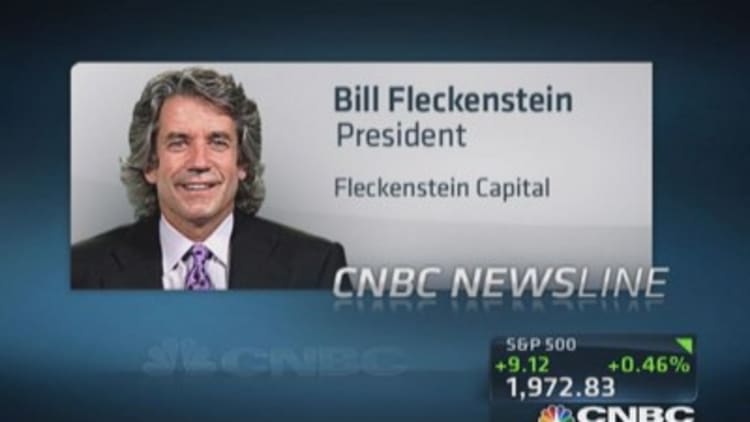Short interest in the average stock is at the highest level since September 2012. And while that could point the way for stocks to dip in the near-term, it could actually serve as a contrarian indicator that suggests the equity rally has room to run.
Looking at all stocks in the S&P 500, the median stock has a short interest of 1.73 percent, far above the average median short interest, according to data analytics provider OTAS Technologies. This is just about the highest median short interest has been since September 2012. (OTAS prefers to look at median, rather than mean, short interest, because stocks with especially large or small short interest skew the latter measure.)
According to Simon Maughan, head of product specialists at OTAS Technologies, this notable rise in short interest reflects two different factors: a rise in negative sentiments about the market and an increase in the funds flowing into hedge fund strategies.
But for asset allocators like John Traynor, chief investment officer of People's United Bank Wealth Management (which manages $5.2 billion), the data actually indicate that market still has room to rally.
"In the near-term, it's indicating that the market's probably a little overbought. But the higher it goes, it's generally a bullish sign. We actually take this as a pretty contrarian indicator, and so in the long-term, we take this as a positive," Traynor told CNBC.com.
Read MoreHere's the new worry that's consuming Wall Street
Of course, it's a simple fact that if investors short a stock, at some point they will have to buy back those shares to cover the position.
"Large short interest, coupled with Fed Chair [Janet] Yellen's dovish comments, makes me think we are susceptible to a strong short-covering rally," said Jim Iuorio of TJM Institutional Services.
Read More The end of QE will cause 15%-20% correction: Expert

So far this year, long-short hedge funds have underperformed their competitors, turning out a performance of just 0.83 percent over the past six months, according to data provided by Bank of America Merrill Lynch. By comparison, diversified hedge funds are up 1.65 percent, and the top-performing event-driven class has enjoyed gains of nearly 4 percent (of course, they have still been underperforming the S&P 500).
Aside from what the rise in short interest indicates about pure market sentiment, then, it could signal better times ahead for active investors, as it indicates that hedge fund managers are getting more money to play around with.
"It's a reflection of people saying, as we come to the end of the QE period and the Fed starts to wind back the amount of fresh stimulus, that they're expecting more of a stock pickers' market," Maughan said. "So they're giving more money to hedge fund strategies, and maybe to stock-specific funds more than to macro."
—By CNBC's Alex Rosenberg.
Watch "Futures Now" Tuesdays & Thursdays 1 p.m. ET exclusively on FuturesNow.CNBC.com!



